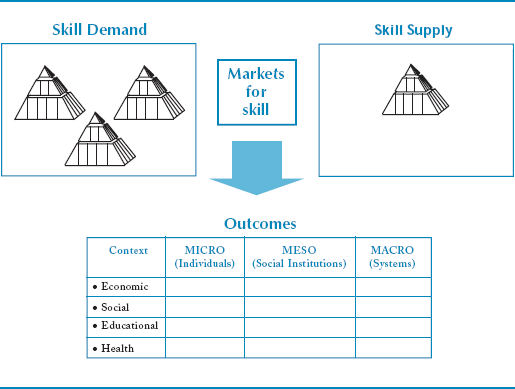Figure 5 shows how skill supply, profiled in the same skill typology as skill demand, meets demand in multiple markets, the most obvious of which is the labour market. Other less obvious markets include the education market that serves to allocate access to scarce educational resources, health markets that allocate access to scarce health resources including health information, and consumer markets for products and services, many of which are heavily reliant on the printed word and, increasingly upon technology — assisted transactions. Less obvious, the ALL framework thinks of families as markets, or transactional systems, wherein skill demands confronting the family unit are matched with the skills available in the family unit. Skill differences and role specialization among family members can create inequities in the distribution of power along gender lines. Finally political systems can be thought of a market that affords individuals access to power. The works of Feriere (Feriere 1970) and Bordieu (Bordieu, 1977) suggest that access to power in these systems depends critically upon individuals having basic literacy and numeracy skills.
Figure 5
Theoretical framework: A "Markets" model of skill
